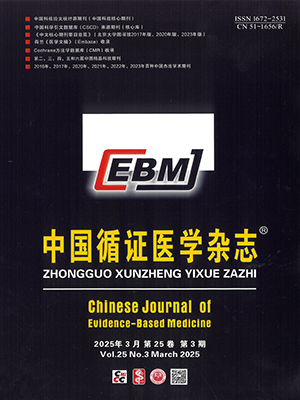| 1. |
Donabedian A. Evaluating the quality of medical care. Milbank Mem Fund Q, 1966, 44(3):166-206.
|
| 2. |
Cleary PD, McNeil BJ. Patient satisfaction as an indicator of quality care. Inquiry, 1988, 25(1):25-36.
|
| 3. |
Porter ME. A strategy for health care reform--toward a value-based system. N Engl J Med, 2009, 361(2):109-112.
|
| 4. |
Bleich S. How does satisfaction with the health-care system relate to patient experience? Bull World Health Organ, 2009, 87(4):271-278.
|
| 5. |
Coulter A. European patients' views on the responsiveness of health systems and healthcare providers. Eur J Public Health, 2005, 15(4):355-360.
|
| 6. |
Liabsuetrakul T, Petmanee P, Sanguanchua S, et al. Health system responsiveness for delivery care in Southern Thailand. Int J Qual Health Care, 2012, 24(2):169-175.
|
| 7. |
Peltzer K. Patient experiences and health system responsiveness in South Africa. BMC Health Serv Res, 2009, 9:117.
|
| 8. |
Malhotra C, Do YK. Socio-economic disparities in health system responsiveness in India. Health Policy Plan, 2013, 28(2):197-205.
|
| 9. |
Hsu CC, Chen L, Hu YW, et al. The dimensions of responsiveness of a health system:a Taiwanese perspective. BMC Public Health, 2006, 6:72.
|
| 10. |
Osborn R, Moulds D, Squires D, et al. International Survey Of Older Adults Finds Shortcomings In Access, Coordination, And Patient-Centered Care. Health Aff (Millwood), 2014, 33(12):2247-2255.
|
| 11. |
Peltzer K, Phaswana-Mafuya N. Patient experiences and health system responsiveness among older adults in South Africa. Glob Health Action, 2012, 5:1-11.
|
| 12. |
蔡泳.联合国预测:中国快速走向老龄化.国际经济评论, 2012, (1):73-81.
|
| 13. |
仇冰玉, 许文青, 曹姗, 等.老年疾病负担与公共卫生服务.社区医学杂志, 2014, 12(1):15-18.
|
| 14. |
王桦, 赵晟珣, 曾尔亢, 等.中国人口老龄化社会发展与应对策略.中国社会医学杂志, 2014, 31(2):75-77.
|
| 15. |
李立明, 饶克勤, 孔灵芝, 等.中国居民2002年营养与健康状况调查.中华流行病学杂志, 2005, 26(7):478-484.
|
| 16. |
李红, 刘晓玲, 曾宇. PDCA循环管理对老年住院患者护理满意度的影响.中国医药导报, 2014, 11(18):129-131.
|
| 17. |
万爱敏.老年脑卒中患者应用社区跟进式护理对生活能力及满意度的影响.中国农村卫生, 2015, (12):50.
|
| 18. |
吴念, 王玫.人文护理对老年干部门诊患者满意度调查分析.中国老年保健医学, 2014, 12(1):117-118.
|
| 19. |
冯晓玲.人性化护理干预对老年病科患者满意度的影响.现代诊断与治疗, 2014, 25(4):941-942.
|
| 20. |
杜方冬, 孙振球, 饶克勤.我国医院信息化发展水平的评价.中国卫生统计, 2010, 27(1):35-39.
|
| 21. |
俞平, 李小平.提高老年人群信息素养积极应对人口老龄化.继续教育研究, 2012, (2):78-80.
|
| 22. |
Salzer MS, Nixon CT, Schut LJ, et al. Validating quality indicators. Quality as relationship between structure, process, and outcome. Eval Rev, 1997, 21(3):292-309.
|
| 23. |
Ministry of Health Labour and Welfare. Statistics and information department.[2016-09-22]. Available at:http://www.mhlw.go.jp/toukei/saikin/hw/jyuryo/14/dl/kakutei-kekka-gaiyo.pdf.
|
| 24. |
Osborn R, Moulds D, Squires D, et al. International survey of older adults finds shortcomings in access, coordination, and patient-centered care. Health Aff (Millwood), 2014, 33(12):2247-2255.
|




